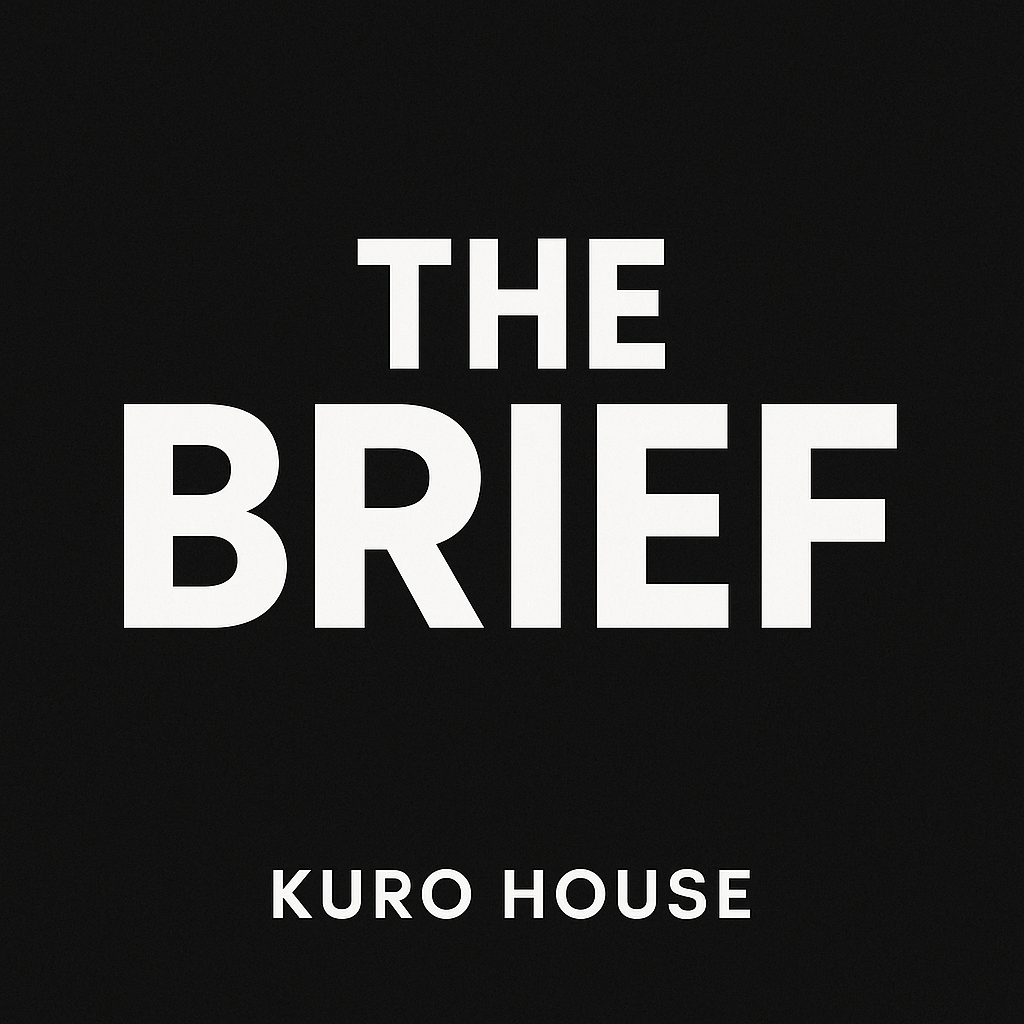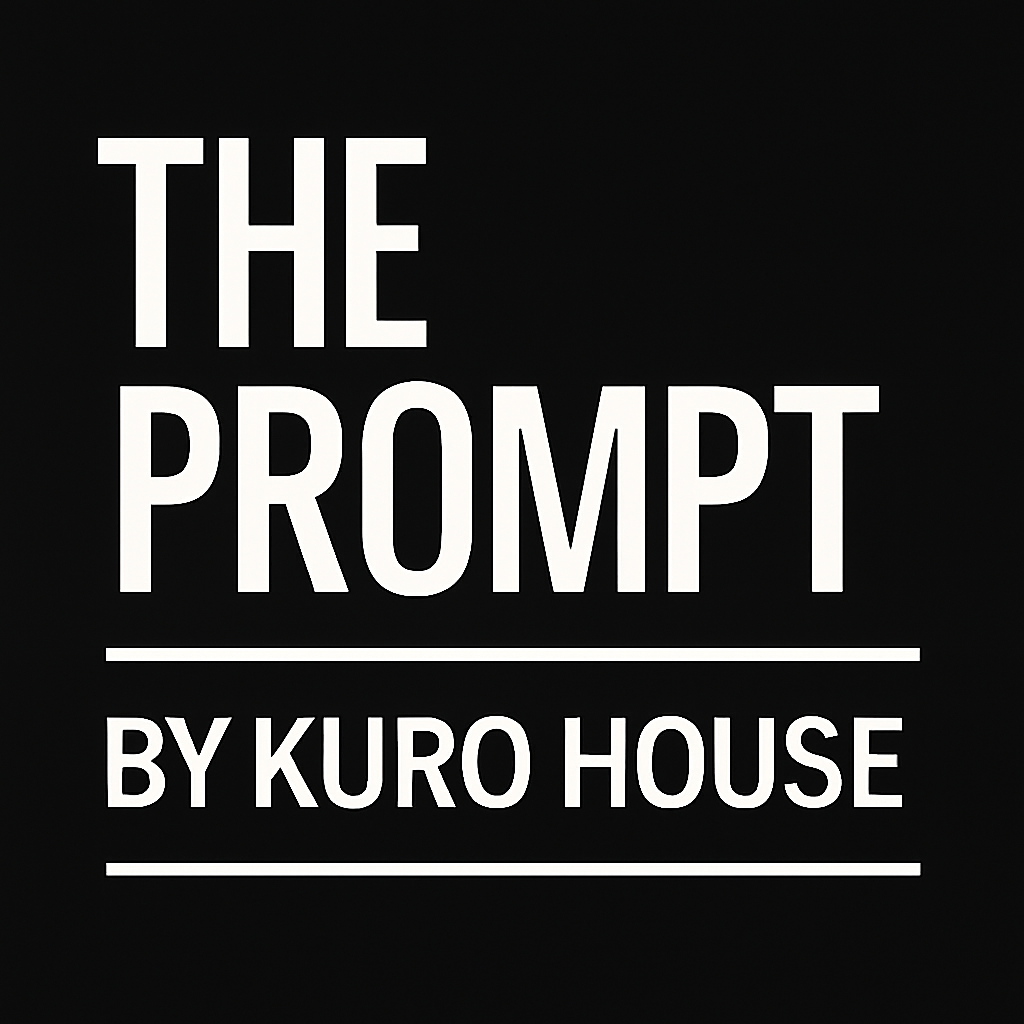Listen To The Show
Transcript
Welcome back to The Brief by Kuro House, your daily marketing intelligence fix. Today, we’re diving into stories that reveal how brands are pushing boundaries—rethinking sustainability, shaking up brand identities, redefining collaboration, and inviting consumers into immersive, real-world experiences. Let’s get right into it.
First up, from Adweek, a story about transformation at the intersection of purpose and performance. Eric Liedtke, the former Adidas executive who launched the Parley for the Oceans sustainability initiative, is now leading a revolution at Under Armour after they acquired his startup, Unless Collective—the world’s first plastic-free apparel brand. Liedtke’s approach is radical: design with purpose, build with nature, and scale what works. Unless Collective’s partnership with Under Armour is more than a greenwashing campaign; it’s a blueprint for a regenerative fashion future. Every piece of apparel is made from renewable, plant-based materials, free from plastics, foams, and toxic dyes, and designed to return to the soil instead of the landfill. Liedtke’s philosophy goes beyond product—it’s about wellness, both for the consumer and the earth. He’s challenging the fast fashion model with regenerative business practices, and he’s bringing in authentic creators and athletes who live the eco-conscious message. His leadership mantra? Curiosity, conviction, and courage—reminding us that progress in sustainability, as in life, happens one thoughtful step at a time.
Next, also via Adweek, PepsiCo has just unveiled its first new logo in 25 years, signaling a major strategic shift. The refresh is more than cosmetic: research showed only 21% of consumers could name any PepsiCo brands besides Pepsi itself. The new logo ditches the old floating globe for a colorful shield design featuring a “P” emerging from a smile, flanked by a leaf and a water droplet—representing snacks, beverages, and customer-centricity. CEO Ramon Laguarta says the new identity better reflects PepsiCo’s expansive global reach. The company is moving from a “house of brands” model, where sub-brands are front and center, to a “branded house” approach, with PepsiCo itself leading the charge. The new logo, already live on their website and rolling out to packaging next year, is stamped with the words “Food. Drinks. Smiles.”—a mission statement aiming to boost consumer recall and unify the vast portfolio, from Doritos to Brisk iced tea. It’s a clear signal that PepsiCo wants to stand as a master brand, not just a collection of products.
Shifting gears to creative risk-taking, Adweek’s Brave Commerce podcast featured Benoit Vatere, chief media officer at Liquid Death, live from Groceryshop 2025. Vatere’s approach to retail partnerships is refreshingly bold: creativity must convert, and retailers are partners, not gatekeepers. Liquid Death’s viral college-themed campaign with Amazon is just one example of how they tie breakthrough ideas directly to retail outcomes. Vatere argues that the media industry needs to stop overcomplicating retail media and focus on what actually drives awareness and conversion. His perspective as a first-time CPG executive with entrepreneurial roots brings a fearless mindset—bravery isn’t just a campaign theme, it’s a business strategy. By aligning creative risks with retailer objectives and treating retail media as a shared opportunity, Liquid Death is building momentum and staying relentlessly focused on results.
Now, let’s step into the world of experiential marketing with Ugg, as reported by Adweek. Ugg’s Feel House pop-up returned to New York City’s Meatpacking District for its fourth year, transforming into what global VP of marketing Carole Diarra calls the “pinnacle expression of the Ugg brand.” The multisensory space, curated this year by New Yorker Ferg, featured bespoke artwork, sweet treats, product customization, and a showcase of Ugg’s latest releases alongside archival collaborations. The pop-up isn’t just about selling shoes; it’s about deepening brand affinity and inviting fans into the Ugg universe. Since Diarra took the reins in 2021, Ugg has evolved from a fall boot staple to a year-round lifestyle brand, powered by unexpected collaborations and a “Feels Like Ugg” promise centered on self-expression and community. The numbers back it up: Ugg’s net sales jumped 10% last quarter, and the brand now ranks 8th among Gen Z’s most visionary brands. While experiential marketing ROI can be hard to measure, for Ugg, it’s all about meaningful connections—whether in person, through influencers, or through creative partnerships.
Finally, a quick heads-up for industry leaders and rising stars: Adweek has opened nominations for its 2026 AI Power List. This list, evolving from last year’s AI Trailblazers Power 100, will recognize executives who are leading AI adoption in marketing and advertising—from data scientists coding algorithms to strategists and creatives deploying AI in innovative ways. Entries are open until December 23, 2025, with early bird pricing available until November 14. Winners will be selected by an external jury and Adweek’s editorial team. If you or someone you know is building the future of AI in our industry, now’s the time to get on the radar.
That’s a wrap for today’s Brief. From regenerative fashion and bold rebrands to creative risk-taking and immersive experiences, these stories remind us that true marketing innovation is equal parts vision, courage, and connection. Thanks for tuning in, and stay sharp—we’ll be back tomorrow with more insights to keep you ahead of the curve.

